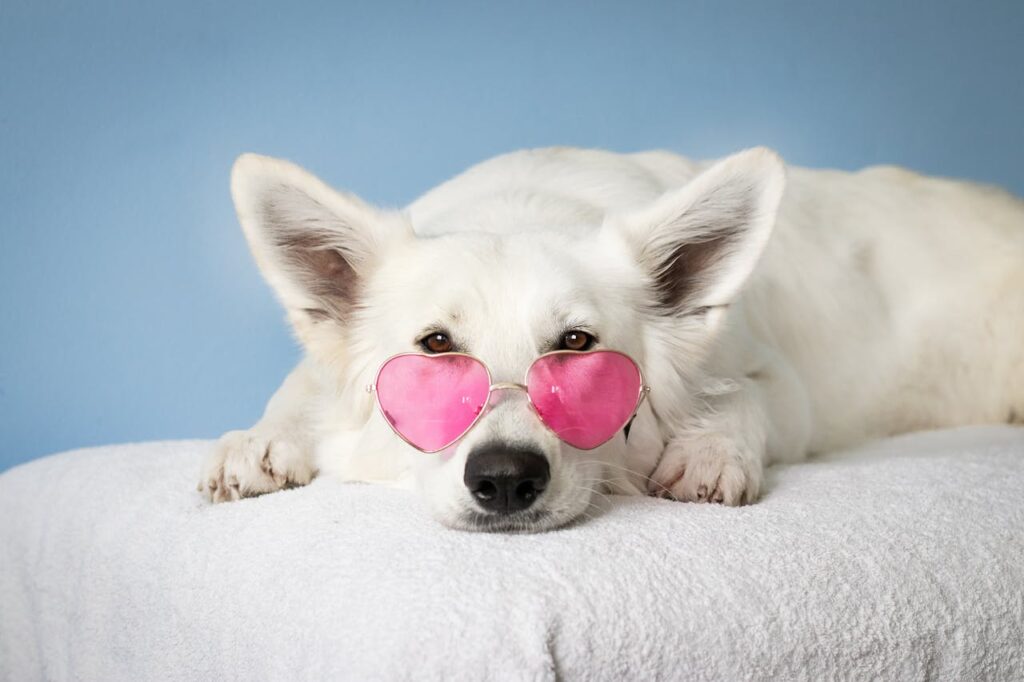To learn how to stop dog allergies immediately, start by identifying the source of your reaction. Dog allergens come from dander, saliva, and urine.
These allergens stick to fur, carpets, and furniture. When dogs shed, allergens spread into the air and onto surfaces.
Watch for common symptoms like sneezing, itchy eyes, or skin rashes. These may appear shortly after contact with a dog.
If symptoms are severe, consult a doctor for confirmation. An allergy test can pinpoint whether dogs are causing your symptoms. Knowing the source helps you take quick and effective action.

Immediate Relief Techniques
When wondering how to stop dog allergies immediately, quick action is key. Start with over-the-counter antihistamines like loratadine or diphenhydramine.
These can reduce sneezing, itching, and swelling fast. Always check the dosage and follow the instructions.
Use a saline nasal spray to clear your nasal passages. This helps remove allergens and reduces congestion. Apply a cold compress to itchy or irritated skin. It soothes rashes and gives instant relief.
If symptoms worsen, take a break from being near dogs. Limiting contact can prevent further exposure until symptoms improve. These steps provide fast relief and help you breathe easier.
Clean the Environment
To address how to stop dog allergies immediately, focus on cleaning your surroundings. Start by vacuuming floors and furniture with a HEPA filter vacuum.
This removes allergens like pet hair and dander. Dust surfaces regularly to prevent buildup.
Wash your dog’s bedding and toys in hot water. This kills allergens and keeps the items safe to touch. Use air purifiers with HEPA filters to clean the air in your home.
These reduce allergens floating around and make breathing easier.
Cleanliness is essential. A clean space reduces allergen exposure and helps control symptoms quickly.
Consult a Doctor or Allergist
If symptoms persist, consult a doctor to learn how to stop dog allergies immediately. A professional can prescribe stronger medications like corticosteroids or decongestants for severe reactions. These provide fast and targeted relief.
An allergist can perform tests to confirm the cause of your allergies. They may suggest treatments like allergy shots (immunotherapy) to build long-term tolerance. If you experience difficulty breathing or severe swelling, seek emergency care immediately.
Medical advice ensures you get the right treatment. This is especially important for managing chronic or intense symptoms effectively.
Preventive Measures for Long-Term Relief
To know how to stop dog allergies immediately and prevent future reactions, take proactive steps. Groom your dog regularly using hypoallergenic shampoos.
This reduces dander and loose fur. Brush your dog outside to keep allergens from spreading indoors.
Create dog-free zones in your home, like your bedroom. This provides a safe space to breathe easier. Use washable furniture covers and clean them frequently.
Consider allergy shots if you have persistent symptoms. These build your body’s tolerance to allergens over time. Prevention helps you enjoy your dog while keeping allergies under control.
Natural Remedies and Lifestyle Adjustments
Natural remedies can teach you how to stop dog allergies immediately using simple methods. Try herbal supplements like quercetin, which acts as a natural antihistamine. Bromelain, found in pineapple, may reduce inflammation and ease breathing.
Boost your immune system with a healthy diet. Include foods rich in vitamin C and omega-3 fatty acids. These strengthen your body’s defenses against allergens.
Gradual exposure to dogs can help build tolerance over time. Always consult a doctor before trying this. Lifestyle changes and natural remedies can work alongside other methods for lasting relief.
Conclusion
Learning how to stop dog allergies immediately involves quick action and preventive care. Start by identifying the allergen and using remedies like antihistamines and nasal sprays for fast relief. Clean your environment to reduce allergen exposure.
Consult a doctor for personalized advice or long-term treatments like allergy shots. Adopt preventive measures, such as regular dog grooming and creating allergen-free zones. Explore natural remedies to strengthen your body’s defenses.
I am sure if you follow the above discussed guideline, you can control dog allergies effectively and enjoy time with your pet without discomfort.
FAQs
- What causes dog allergies in humans?
Dog allergies are caused by proteins in dander, saliva, and urine. These proteins stick to fur and spread throughout the home. - Can you outgrow a dog allergy?
Some people build tolerance over time, but allergies often persist. Treatments like immunotherapy can help reduce symptoms. - Are hypoallergenic dog breeds safe for allergy sufferers?
No breed is completely hypoallergenic, but some shed less and produce fewer allergens. Regular grooming can further reduce exposure. - What is the fastest way to relieve dog allergy symptoms?
Take an antihistamine and use a saline nasal spray. These reduce sneezing and congestion quickly. - Can air purifiers help with dog allergies?
Yes, air purifiers with HEPA filters capture pet allergens from the air. They help create a cleaner and safer environment. - Is bathing my dog frequently helpful for allergies?
Yes, bathing your dog regularly with hypoallergenic shampoo reduces dander. It keeps allergens from spreading indoors. - What natural remedies can ease dog allergies?
Supplements like quercetin and bromelain can reduce inflammation. A diet rich in vitamin C and omega-3 also strengthens immunity. - Should I avoid dogs completely if I’m allergic?
Not necessarily. Limit exposure and manage symptoms with medication, cleaning, and preventive measures. - Do allergy shots work for dog allergies?
Yes, allergy shots (immunotherapy) can reduce sensitivity to dog allergens over time. Consult an allergist for details. - Can dog allergies get worse over time?
Yes, prolonged exposure may worsen symptoms for some. Proper management and medical advice can prevent this.


Pingback: Do Dogs Sense Depression? The Canine Connection - Tech Promot